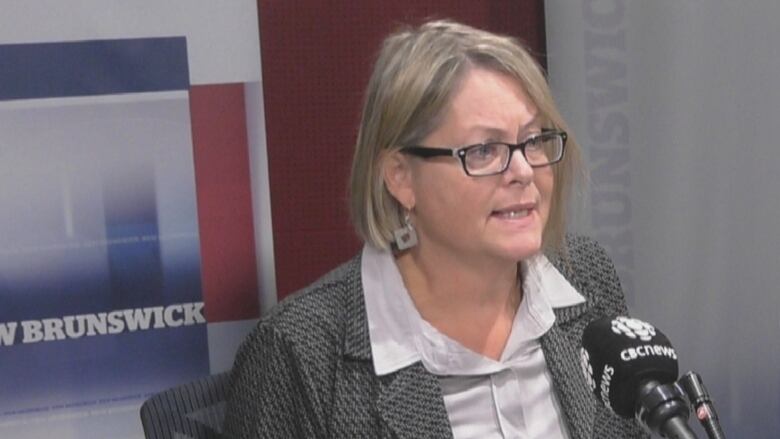Landlords must prove Airbnb conversions aren't retaliation against tenants
Senior couple going through 2nd tribunal process after landlord sends notice of eviction

The province's Residential Tenancies Tribunal is investigating whether a senior couple's eviction to make way for an Airbnb-style conversion of their apartment is retaliatory.
Last Christmas, a Fredericton couple received a notice of a 67 per cent rent increase. They complained to the tribunal, which decided the increase was too highconsidering the area.
This month, the couple are again facing eviction after they received a notice their apartment is to be converted into aAirbnb-style "short term rental."
Pauline Tramble, 67, and her husband, Charles Tramble, 84, againwent to the tribunal.
Service New Brunswick Minister Mary Wilson said Friday that while landlords are allowed to change their business model from residential to tourism, the tribunal is looking for proof the conversion was not "retaliatory."
"The residential tenancy officer who is assigned to her case is looking into this," Wilson told Information Morning Fredericton Friday. "Is it a retaliatory change? Is it a true change? Are the [landlords] acting in good faith or not?"
The landord would have to have a plan for the conversion and follow through, she said.

The Trambles and their neighbour all received the notices three days after the New Brunswick government passed legislation to limit rent increases by 3.8 per cent and "protect tenants from terminations without just cause."
After the rent-increase cap was announced, a video surfaced of landlords discussing ways to get around the temporary rent-increase cap. They discussed converting to short-term rentals and planning extensive renovations as ways to get current tenants out, so they can increase the rent as much as they want for the new renters.
Tribunal only investigates if tenants complain
Wilson said it's up to tenants experiencing these problems to alert the tribunal. The tribunal will then investigate, and decide if the landlord truly intends to go through with the renovations or lease the apartments for less than 90 days at a time.
"These are the rules," she said. "[Tenants] have to reach out to us. We will follow up. We will make sure it's being done."
Wilson said the onus is on the tenant to complain, and not on the landlord, because "a lot of situations don't require any intervention."
"Often there is an agreement between the tenant and the landlord that, yes, you know what, there's asbestos in the walls, I can't live here.It works that all we require is contact from that tenant and that's it."
Wilson said if the landlord is found to not be acting in good faith, the province will charge them accordingly. This can meanpenalties for the landlord and financial compensation for the renter.
The landlords' defence
Willy Scholten, president of the New Brunswick Apartment Owners Association representing landlords, said he couldn't speak to the Trambles' case specifically.
However, he said he would support a landlord converting a home to a short-term rental if that's the only way to avoid missing their mortgage payments and losing a property.
He said it's not acceptable if the reason is to maximize profit.
"If they're getting extraordinary increases in their costs if that is the case, then they're fighting tooth and nail maybe to to keep the property," he said.
"If somebody is solely trying to make an exorbitant increase, I would certainly not support that."

Scholten said the video showing landlords discussing how to get around the rent cap came out when landlords were facing 20 per cent increase in property taxes, and inflation on everything else.
"Landlords are scrambling," he said. "The costs were astronomical coming to landlords, and they're just trying to deal with that."
When asked about theimbalance between the risk of losing profitable property versus the risk of tenants losing their homes, he said the imbalance falls on the government.
He said if the government is going to limit landlord revenue, then it should limit expenses as well, to "balance it out."
He did not give examples of how the government could limit expenses for landlords, but noted it's already helped landlords with a lowered property tax increase.
"We need to start to figure out how to decrease the cost of providing housing so we can make the rents more affordable," he said.
With files from Information Morning Fredericton












_(720p).jpg)


 OFFICIAL HD MUSIC VIDEO.jpg)
.jpg)



























































































